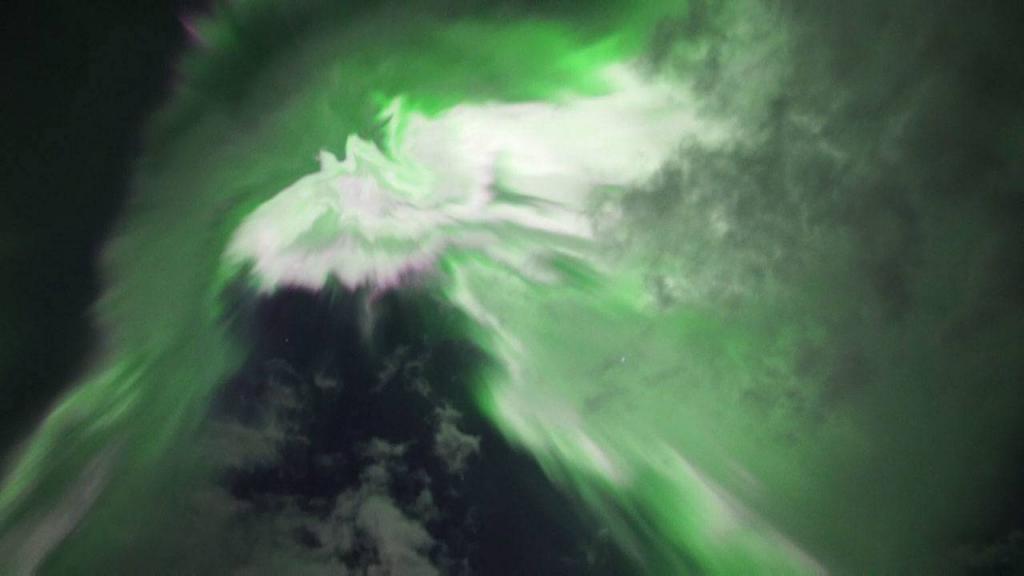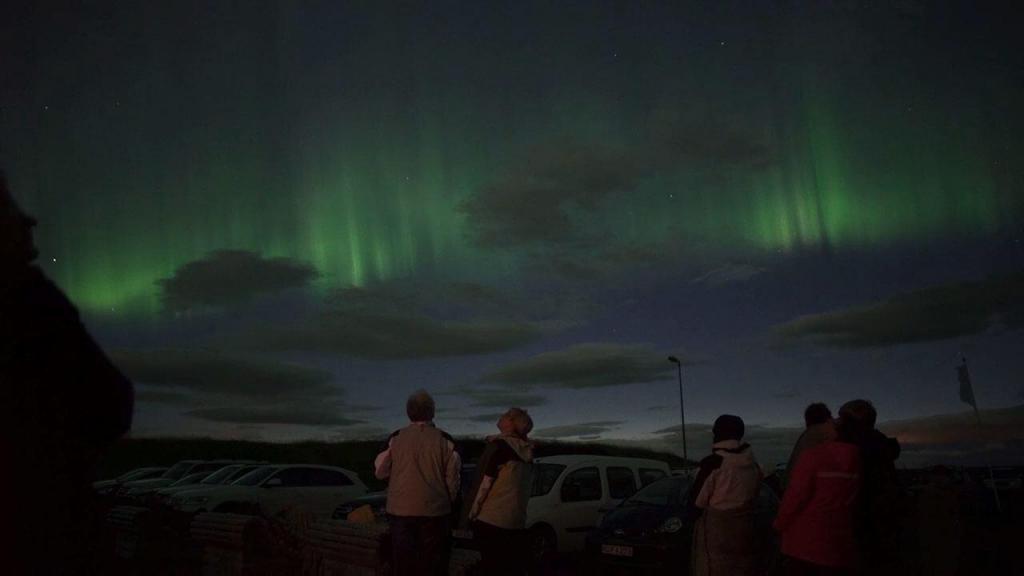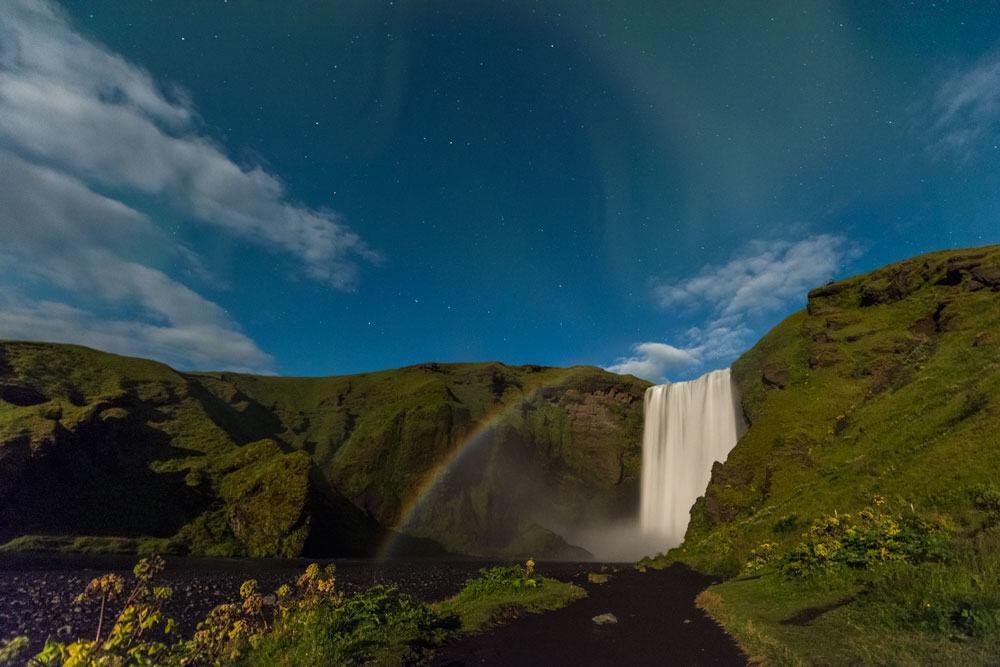Free and exclusive discount codes for hundreds of tours and & travel services in Iceland
Subscribe to instantly receive discount codes for tours, car rental, camper van rental, and outdoor clothing rental. Thank you! ❤️ Jon Heidar, Editor of Stuck in Iceland Travel MagazineSævar Helgi Bragason is Iceland´s stargazer-in-chief and I am happy to call him my friend. He heads the largest astronomy club in the country and is a celebrity and a local hero for almost single-handedly organizing a massive national event for the 2015 solar eclipse where he distributed thousands of solar eclipse glasses to Icelandic schoolchildren. In this interview, we discuss how to catch the elusive northern lights and stargaze in Iceland. There are countless Northern Lights tours available. But remember the northern lights are elusive!
Sævar Helgi has set up a web page which shows you a forecast of the northern lights over Iceland
Setting up a Stargazing Platform at a Luxury Hotel
One aspect of his work is setting up an impressive stargazing platform and telescopes at Iceland´s finest luxury hotel, Hotel Ranga (I have no affiliation to that hotel but I have stayed there a few times so I know what I am talking about!). Sometimes he gets very lucky there and captures a magical interplay of shimmering northern lights and sparkling stars. One of his videos of an incredible display of the beauty and wonder of northern lights taken at the hotel has gone viral worldwide.
August 27 aurora storm (in real time) from Stjörnufræðivefurinn on Vimeo.
I asked Sævar a few questions about stargazing and looking for the northern lights in Iceland:
The northern lights can be tricky to see but what are your tips for seeing them here in Iceland?
Find clear skies! That can be hard at times but if the skies are cloudy in the south, it’s often clear in the north and vice versa. As someone who goes out every time the skies are clear, I see the auroras almost every clear night. Sometimes they’re faint, just barely visible at the northern horizon and sometimes they dance all over the skies. It just depends on the activity of the Sun, so keep an eye on space weather forecasts.
Myth: Northern lights are more common in cold weather
Which reminds me of a common misconception about the auroras: Terrestrial weather has absolutely no effect on the auroras. The auroras form when wind from the sun, which is just charged particles, collide with our atmosphere. The collision ionizes the oxygen and/or the nitrogen which give of light. It does not have to be cold for the auroras to show up and it doesn’t have to be winter. The auroras are there throughout the year, they are just too faint to be seen in the light of the midnight sun in the summer.
Be patient when looking for the the Northern Lights and Stargazing in Iceland
Research has shown that auroras are most frequently seen around the equinoxes and around midnight. Just find clear skies away from the light pollution and look up! Be patient, it might take a while but you can increase your luck by being outside between 22:30 and 01:00.

Are there any celestial phenomena that are especially well visible from Iceland?
Aside from northern lights, no not really. We see the same sky as other northern hemispherians around the same latitude. However, it really doesn’t get as cold in Iceland as in many other places at the similar latitude. The air is clean and you don’t have to drive that far to leave the most heavily light polluted areas. So in my view, Iceland is a great place to enjoy the night sky.
What places, time of year or even specific equipment do you recommend for stargazing in Iceland?
Pretty much any place in the country away from light pollution is a good place, as long as the skies are dark and clear. We have almost 24 hours of daylight in the summer, so the aurora and stargazing season starts in late August and ends in late April or so. I’ve seen auroras in early May and early August in a deep blue midnight sky.

The Proper Equipment for Seeing the Northern Lights and Stargazing in Iceland
It’s also good if you have shelter from the winds as it can be quite windy in Iceland. You don’t really need any equipment — the night sky is beautiful to the unaided eye — especially if you look at the auroras. Binoculars and telescopes just have too narrow field of view for it to be useful for aurora watching.
Binoculars are great though for sweeping the Milky Way. You can see a lot using just binoculars: Craters on the Moon, moons of Jupiter, even far away galaxies if you know where to look.
Telescopes allow you to go deeper still and see more details. I love refractors since the view through them is sharp, contrasty and beautiful, but they can be very expensive. For beginners, I always recommend a good 6 or 8 inch Dobsonian telescope. It shows you an awful lot of objects for amazing value.
The most important equipment is warm clothes! You don’t last very long in the cold if you don’t dress accordingly. Bring something warm to drink as well. A hot cocoa is always nice.

You have set up telescopes and a viewing platform at Hotel Ranga, can you elaborate on the equipment and facilities there?
The observatory at Hotel Rangá is by far the most advanced in Iceland. It houses two telescope under a roof that rolls off by a push of a button. These telescope are of very high quality. We have an 11 inch reflector that’s very good for looking at faint objects far away, like nebulas and galaxies, and is also excellent to observe the planets. The other scope is my favourite. It’s smaller, a refractor by a telescope company called TEC. It’s only 160mm in diameter but of highest quality, super-sharp and the views are, well, in my view, breathtaking. That telescope is on a mount of the highest quality by a US company called Astro-Physics. The combination is perfect for astrophotography.
We also have a 18 inch reflector that can be wheeled outside. That telescope is a bit too big for use inside the observatory, but perfectly suited to use outside. It’s the biggest telescope in Iceland. So that is pretty great when you are looking for the northern Lights and stargazing in Iceland
Every clear night, I go to the observatory and show people the stars. I give a short guided tour of the night sky, tell people about the myths behind the constellations and of course what science has revealed to us about the wonders up there. It’s a fantastic second job, a lot of fun! Getting paid to look at the stars! I couldn’t possibly ask for more.
Iceland will be at the epicenter of the total solar eclipse in 2026. Have you started to prepare for that?
Oh, yes, absolutely! We learned so much from our adventures with the partial solar eclipse in 2015 and will be very well prepared for August 2026. We have to be. The eclipse will be total for the western part of the country at high season in tourism. The sooner we start thinking about this, the better. We have a lot of work to do!




